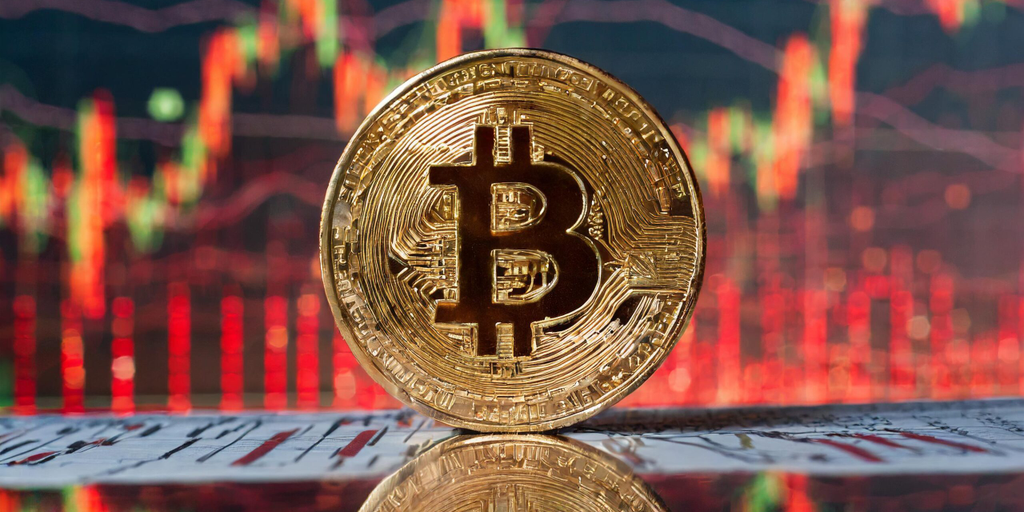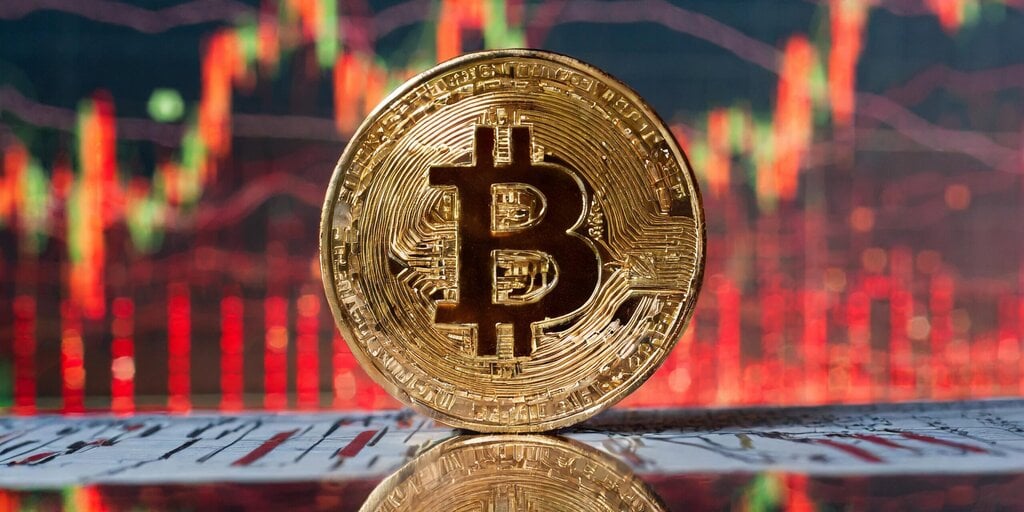As Bitcoin climbs higher and higher, crypto watchers are furiously debating when the number-one cryptocurrency will meet and exceed its all-time high—but a lot has changed since November 2021.
Should the price of Bitcoin return to its high-water mark of $69,044 per coin, according to CoinGecko, it would do so in very different market conditions, including the rate of inflation that’s struck the U.S. since then. Would the real target be closer to $75,000, then?
That’s what the U.S. Bureau of Labor Statistics’ Consumer Price Index (CPI) inflation calculator says the price of a Bitcoin in November 2021 would be worth today.
After Bitcoin marked those stellar highs, it lost more than half its value in a steady decline as the crypto bear market set in. A year after reaching its all-time high, the price of Bitcoin was $17,586. Even so, inflation continued apace—ranging from 4% to 8% per year—while Bitcoin slowly climbed back above $30,000 last April, and above $40,000 in December, to reach its current levels.
Another factor: inflation grew faster than the available supply of Bitcoin during the same period. In December 2021, the total supply of Bitcoin was 18,915,566. This amount has since increased by 713,707, or about 3.8 percent, to 19,629,263 as of February 2024.
With Bitcoin frequently positioned as an “inflation hedge”—an investment made to protect against a decrease in the purchasing power of money—one might ask how the top crypto has performed over the current U.S. inflationary period. A recent r/Cryptocurrency post on Reddit sparked a robust debate over the question.
Such calculations also need to account for the upcoming Bitcoin halving, which will cut the amount of Bitcoin that miners are rewarded with in half, as the name suggests. This milestone’s impact on BTC’s future price is hotly debated.
Given all this, have the goalposts moved?
No, replies David Waugh, an economist and lead analyst at Bitcoin financial services company Coinbits.
“All-time highs are almost always measured in nominal rather than real terms, so claiming that Bitcoin’s price must break its previous all-time high, adjusted for inflation, is an apples-to-oranges comparison instead of apples-to-apples,” Waugh told Decrypt.
According to Waugh, meaningfully measuring Bitcoin’s exchange rate in dollars will require adjusting its all-time highs for inflation since its inception in 2009 and comparing each new high to the previous inflation-adjusted figure.
Even so, Waugh says there is reason to believe that Bitcoin’s price will significantly rise in 2024.
“Spot Bitcoin ETFs are generating massive inflows, putting positive pressure on price as issuers purchase BTC to fill orders,” Waugh said, noting how BTC allocations are changing traditional ETF portfolios. “This additional source of demand creates a flywheel for Bitcoin adoption as BTC allocations are normalized across financial markets.”
In addition to ETFs, Waugh continued, Bitcoin companies building layer-2 solutions for the Bitcoin ecosystem and consumer-facing products will make Bitcoin more useful and approachable for consumers.
“Watch for more ‘killer apps’ across payments, banking, and fintech to incorporate Bitcoin in their offerings, driving adoption and exerting additional positive price pressure,” he said.
Edited by Ryan Ozawa.
Stay on top of crypto news, get daily updates in your inbox.
Source link




![[CITYPNG.COM]White Google Play PlayStore Logo – 1500×1500](https://startupnews.fyi/wp-content/uploads/2025/08/CITYPNG.COMWhite-Google-Play-PlayStore-Logo-1500x1500-1-630x630.png)